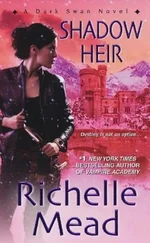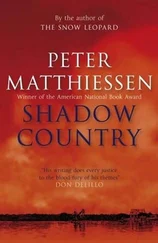Peter Dickinson - Shadow of a Hero
Здесь есть возможность читать онлайн «Peter Dickinson - Shadow of a Hero» весь текст электронной книги совершенно бесплатно (целиком полную версию без сокращений). В некоторых случаях можно слушать аудио, скачать через торрент в формате fb2 и присутствует краткое содержание. ISBN: , Издательство: RHCP, Жанр: Старинная литература, на английском языке. Описание произведения, (предисловие) а так же отзывы посетителей доступны на портале библиотеки ЛибКат.
- Название:Shadow of a Hero
- Автор:
- Издательство:RHCP
- Жанр:
- Год:неизвестен
- ISBN:9781448172627
- Рейтинг книги:3 / 5. Голосов: 1
-
Избранное:Добавить в избранное
- Отзывы:
-
Ваша оценка:
- 60
- 1
- 2
- 3
- 4
- 5
Shadow of a Hero: краткое содержание, описание и аннотация
Предлагаем к чтению аннотацию, описание, краткое содержание или предисловие (зависит от того, что написал сам автор книги «Shadow of a Hero»). Если вы не нашли необходимую информацию о книге — напишите в комментариях, мы постараемся отыскать её.
Shadow of a Hero — читать онлайн бесплатно полную книгу (весь текст) целиком
Ниже представлен текст книги, разбитый по страницам. Система сохранения места последней прочитанной страницы, позволяет с удобством читать онлайн бесплатно книгу «Shadow of a Hero», без необходимости каждый раз заново искать на чём Вы остановились. Поставьте закладку, и сможете в любой момент перейти на страницу, на которой закончили чтение.
Интервал:
Закладка:
‘I am Minna Kanors,’ she had told them.
Their looks had changed to amazement, and then to smiles and handshakes.
‘This is my daughter Letta,’ Momma had said, and Letta had found herself being kissed by crones and hugged by smelly old men with bristly chins while the news was cried from house to house and more old people came hurrying out for more kisses and hugs and greetings, with Letta still trying to guess why Momma, whose unmarried name had of course been Vax, had told them she was Minna Kanors. And now small gifts began to be brought – a couple of figs, an almond biscuit, strips of dried fish from the lake (practically pure salt), doll-size mugs of fiery clear peach brandy. At last the whole gang of them, about fifteen, all old (anyone under fifty was probably in Potok for the festival), had led them off to a one-roomed house, barely bigger than a kennel, leaning against the church, and there in a wooden bed they’d found an old woman, quite blind and almost deaf, and they’d bellowed in her ear to tell her that Minna Kanors had come to see her, bringing her daughter.
‘This was my foster-mother,’ Momma had whispered.
The blind woman had smiled and nodded and whispered Momma’s name, and Momma had sat on a stool by the bed. Letta had bent and kissed the chill, shrivelled cheeks, and then they’d all gone back into the sunlight, leaving Momma and the old woman together. They’d asked Letta questions, not about England or America, not about swimming-pools (she didn’t see any TV masts and later Steff had told her that they probably couldn’t get any signals at Lapiri because of the mountains) but about family. How many sons? Two only? And just the one daughter? Well, one daughter was enough to look after the parents in their old age. And only two grandchildren? Tsk tsk. She’d mentioned Grandad. Restaur Vax? Ah, yes, a very great man, but she hadn’t been sure they’d been talking about the right Restaur Vax, because two of the old men insisted on leading her off to see the cell where the Hermit of Lapiri had lived, four or five mossy stones beside a dribbling stream in the middle of the wood . . .
Momma had allowed her to take photographs when they went back to the taxi, but she obviously hadn’t wanted to talk. They were off the cart-track and onto the metalled road before she said anything, and even then, though there was no way the driver could have heard her above the growls and rattles of his cab, she spoke in English and kept her voice down, almost to a whisper, low and strained.
‘There is something I have to tell you,’ she said. ‘I don’t want to, but it’s important to both of us. It may help you to understand why things aren’t . . . aren’t easy, quite, between us . . . not like they ought to be with a mother and daughter. There’s a sort of block, isn’t there? Something in the way?’
‘Not really. Well, yes, sometimes, I suppose . . . Honestly, you don’t have to worry, Momma. I’m used to it. It doesn’t matter.’
‘It does matter, but I can’t help it . . .’
She paused, sighed, drew a breath and began.
‘Well, I was born about three years before the Germans came. No, four, it must have been. Your grandfather was teaching at Virnu, in Yugoslavia. I don’t remember any of that time. When the Germans came he joined the Resistance – he had no other choice, I accept that. He sent me and my mother to Lapiri because Romania was pro-German and he thought we would be safer there, but soon there were Germans in Romania too. My mother had been born in Lapiri, so she used her family name, Kanors. If anyone asked, I was her illegitimate daughter. As far as I knew I had no father, though I remember being woken at night once, and a man being there who took me onto his lap and talked to me. The villagers knew who I was, of course, but they don’t tell things to strangers. Lapiri was my childhood, the only world I knew. I had a friend of my own age, Junni. She had no father, too. We were like twin sisters, never apart. I think I was as happy as a child can be.
‘Then the Germans were driven out, and I remember a confused and frightening time, car journeys, and cheering crowds, and huge rooms, and town-smells, and strangers looking after me, and my mother, when I saw her, seeming unhappy and worried, and pretending not to be. And this man who said he was my father . . . I didn’t want a father, I wanted Junni. But there was a day when the man took me onto his lap and told me stories, and when important people came to talk to him he sent them away. My mother was there. I could see she’d been crying. Then the man said goodbye.
‘And then my mother came to my room and woke me and helped me to dress in the dark and we crept through passages and down stairs and through cellars and came out in a dark street where men were waiting, with guns. They led us, stopping often, through twisting streets. We got into a car, my mother and I and two of the men, and drove without any lights through the dark. It was very bumpy, not a proper road, but I fell asleep. To my joy I woke in my own room at Lapiri.
‘I ran out to look for Junni, but I found her house in mourning. She had missed me as much as I’d missed her, and she’d gone off one morning alone. They thought she must have gone to look for me, but she’d fallen into the lake and drowned. Her mother was all in black. She didn’t tell me about the lake. She held me close and said that Junni had gone to the Virgin and St Joseph. I thought these must be places like the town where I had been, and soon she’d come back, like I had. I didn’t understand anything. Nobody told me anything true. They thought they were being kind to me, I suppose, not telling me. All I knew was that Lapiri wasn’t a happy place any more, and everyone was afraid.
‘Then, next day I think, my mother said I must hide for a while, and she might be going away too, but I mustn’t worry. She smiled and patted and stroked me, but I could feel she was frightened like everyone else. Her cousins took me to a cave in the mountain. They said I mustn’t come out. They brought me food at night. I don’t know how long I stayed there. I don’t even remember being there. Only sometimes in a shadowy way I can see somebody, a child, sitting in a dark place and staring at a big white patch – that would be the mouth of the cave, I suppose – with her knees drawn up to her chin and her arms round them and just rocking, rocking, rocking . . .
‘The next thing I remember is being back at Lapiri, but not in our house, in Junni’s. It was several months later, but I didn’t know that. I only learned much later what had happened. Almost as soon as I had hidden, the Communists had come. The villagers had seen their cars across the lake and were ready. Junni’s mother took off her mourning and my mother put it on. They told the Communists that it was I who had drowned. They showed them Junni’s grave. The Communists made my mother watch while they dug the body up. She identified it as mine. They took her and it away, my mother blindfolded, and the body in a sack which they tossed in the back of one of their cars as if it had been potatoes. The people of Lapiri watched in silence.
‘You met Junni’s mother just now. Minna Vari. When they went to fetch me from the cave they found me crazed, so I became Minna’s crazed daughter. She cared for me, watched over me, was utterly patient with me, as if I had been her own child. I don’t remember any of that time. It’s like the cave. I can – I don’t know – feel in a shadowy sort of way somebody looking after me, my guardian, who would never let anything else that was bad happen to me. I suppose I thought it was my mother, but it can only have been Minna. I think without her I might have stayed crazed all my life.
‘But when I came to myself, she sort of withdrew a little. She told me that I must now be called Junni Vari, and that I must never tell anyone that my real name was Minna Kanors . . .’
Читать дальшеИнтервал:
Закладка:
Похожие книги на «Shadow of a Hero»
Представляем Вашему вниманию похожие книги на «Shadow of a Hero» списком для выбора. Мы отобрали схожую по названию и смыслу литературу в надежде предоставить читателям больше вариантов отыскать новые, интересные, ещё непрочитанные произведения.
Обсуждение, отзывы о книге «Shadow of a Hero» и просто собственные мнения читателей. Оставьте ваши комментарии, напишите, что Вы думаете о произведении, его смысле или главных героях. Укажите что конкретно понравилось, а что нет, и почему Вы так считаете.








